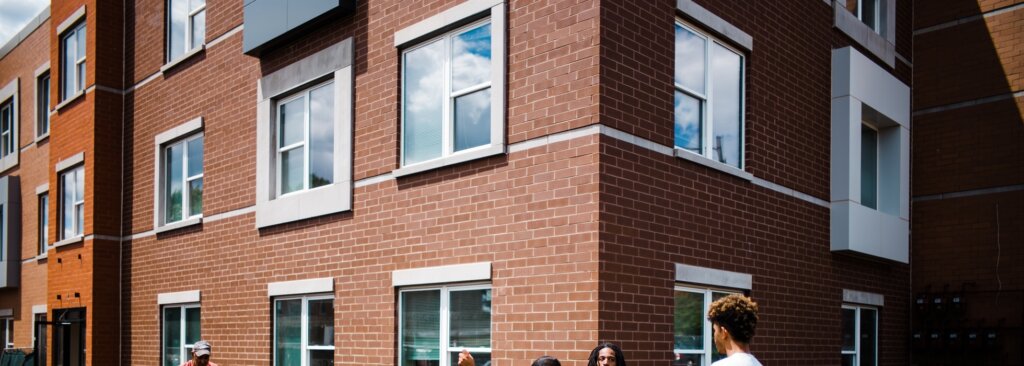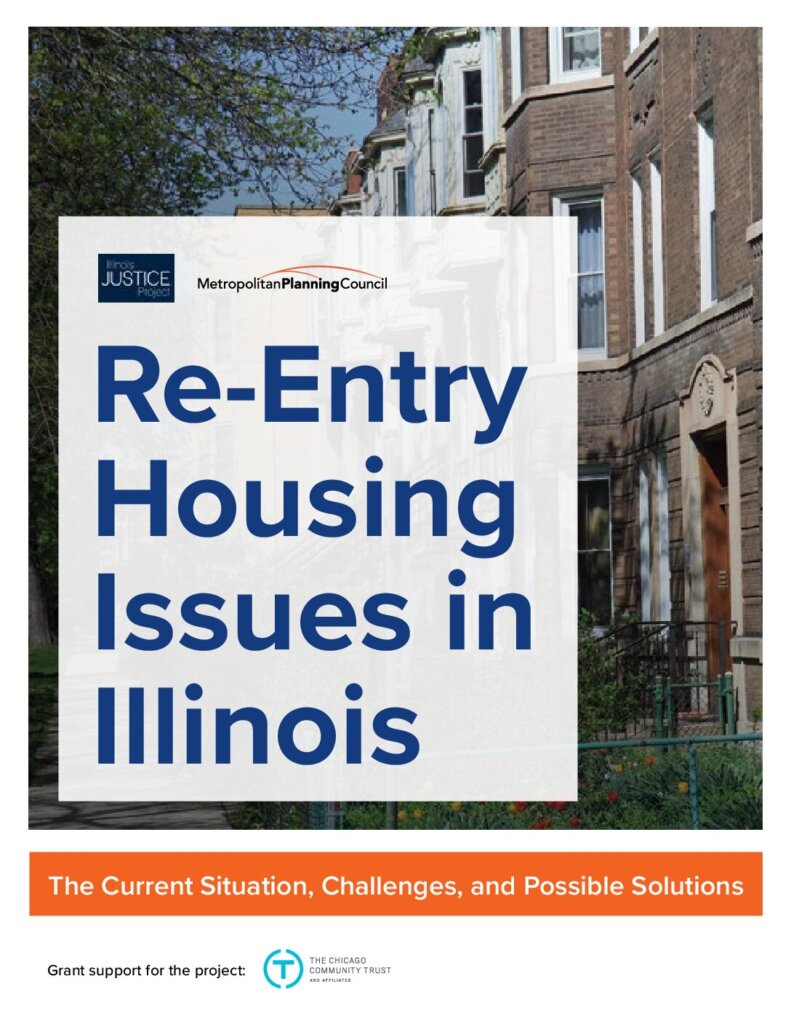Re-entry Housing

A new approach to moving from incarceration to community
Housing is fundamental to personal stability, and when individuals lack it, the consequences are dire. This is especially true for those who are returning to local communities from prison. Experts who have studied our current corrections programs agree that every individual leaving prison needs three key things — employment, housing and healthcare. In fact, without the most basic of human needs — a roof over a head — justice-involved individuals struggle to reintegrate, at great cost to Illinois’ public safety and to the fabric of our communities.
Issue
Consider the following statistics about those re-entering communities
- Nearly 40% of people return to prison within three years, each time costing taxpayers over $150,000.
- The majority of unsheltered people in Chicago were previously incarcerated — 60% of unsheltered men and 58% of women report being previously incarcerated in jail or prison.
- Illinois spends billions each year to incarcerate men and women, and disproportionately few resources to keep them from returning.
Many solutions have been advanced, but most seem to lack what’s clearly essential: a safe, supportive and aff ordable place to live. Without that, people cannot work or get essential treatment they may need to address mental health or substance abuse issues, causing them to engage in illegal activities and threatening public safety.
Solutions
That’s why the Illinois Justice Project and the Metropolitan Planning Council launched an in-depth, three-year effort to address a major, unresolved problem facing public officials: how to find stable living conditions for the tens of thousands of individuals who depart state prisons and jails each year. Re-Entry Housing Issues in Illinois: The Current Situation, Challenges, and Possible Solutions is the result of that work.
We’ve met with leaders from over 60 organizations including the Illinois Housing Development Authority, the Illinois Department of Corrections, and others who interact daily with individuals leaving incarceration. Signifi cantly, this project marks the fi rst time the Illinois Department of Corrections and the Illinois Housing Development Authority have ever reviewed re-entry housing issues in depth. Discrimination, combined with aff ordable housing shortages, perpetuates the exclusion of formerly incarcerated people from the housing market.
But those aren’t the only challenges facing this population. Needs are both varied and complex, and in addition to housing, a justice-involved person may need health care, substance abuse counseling, and job training. He or she may also struggle to navigate a complicated, patchwork system that would overwhelm anyone.At the same time, resources available at the state and local levels are fragmented and services lack coordination.
Benefits
The adoption of more effective re-entry housing strategies, the creation of additional housing for those currently or formerly under criminal justice supervision, and the improvement and additonal resourcing of re-entry housing programs will:
- Reduce recidivism
- Improve the lives of some of our most vulnerable community members
- Help diminish the burden on taxpayers in our state
Collaborators
The Illinois Justice Project (ILJP) is a continuation of the Justice and Violence Group at Metropolis Strategies and engages in criminal justice reform efforts that promote policies that will make our communities safer and reduce recidivism among youths and adults. Established in 2014 as a legacy project of Metropolis Strategies, the non-profit ILJP is a supporting organization of the Chicago Community Trust and an affiliate of The Commercial Club of Chicago.
Read the full report here:

